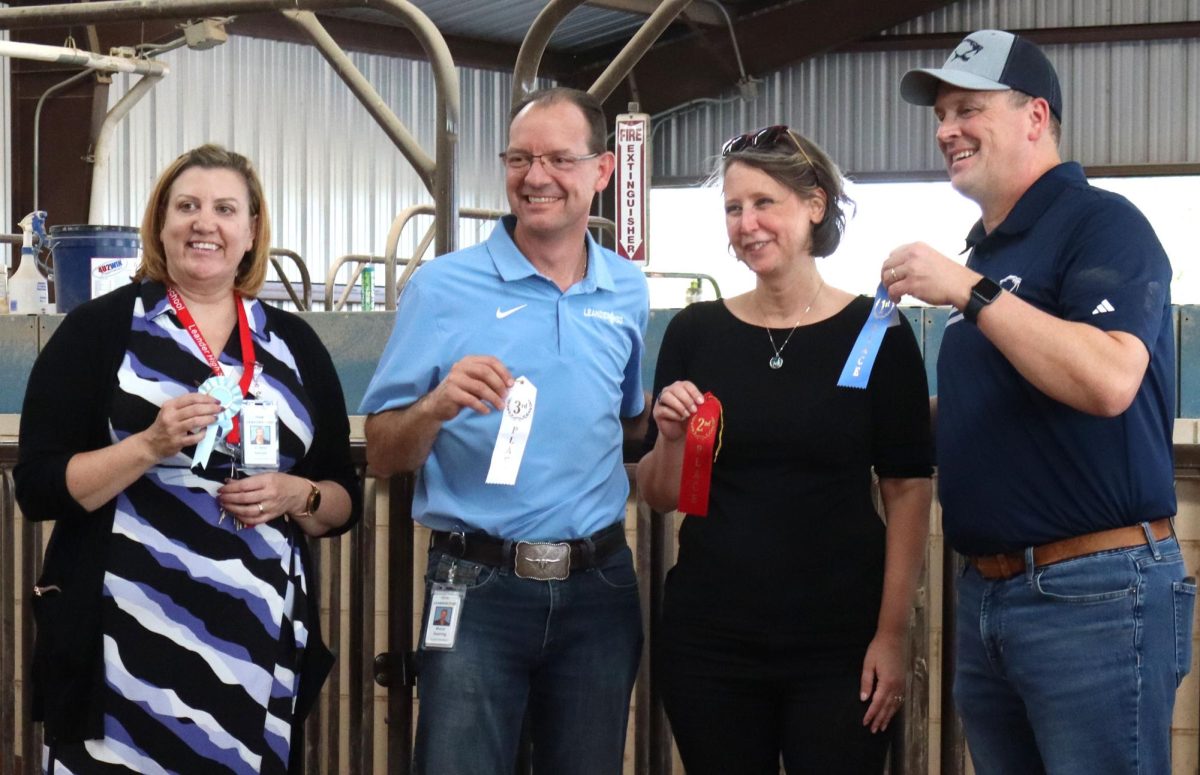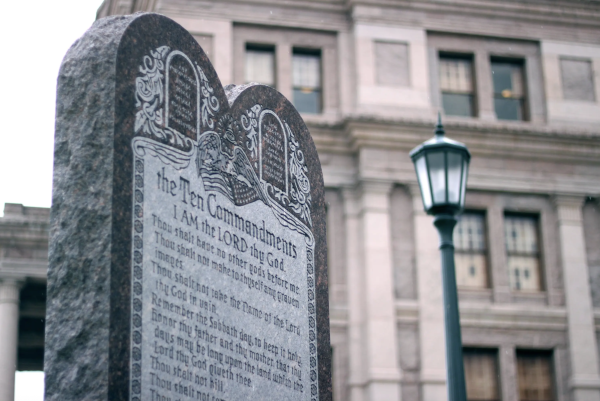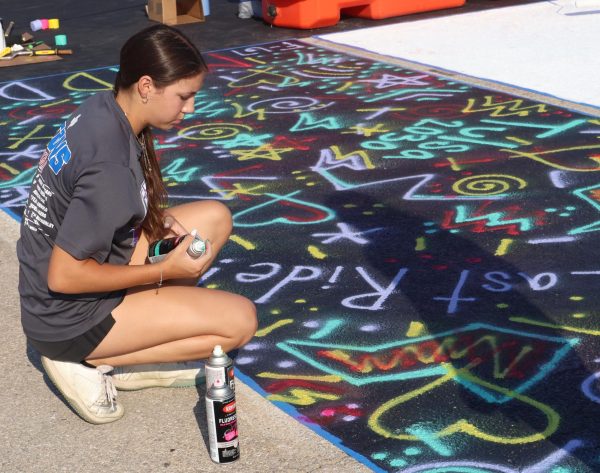The Unsung Heroes of Theatre
Theatre technicians, who they are, what they do, and why they’re so important.
May 11, 2023
On stage, the instruments flourish, the dancers finish with certainty and the spotlights fade away as the audience roars in applause. However, the true unsung heroes of theatre exist behind the curtain, in the darkness backstage where they are only illuminated by the bright lights of switches and controls.
A theatre technician, also known as a “techie,” is someone who operates all the equipment and manages systems behind the curtain. They build sets, design costumes, make props and manage the show.
“Production stage manager is the overall stage manager, meaning I manage the production and make sure everyone was where they needed to be when they needed to be,” senior production stage manager Briana Keaster said. “I work with everyone in the company to ensure that there’s a stable form of communication between the actors, technicians and directors by managing attendance and relaying that information to the directors, or by creating rehearsal reports that have information about that day’s rehearsal and any notes for the actors or technicians. Before the show, I work with the rest of the stage management team to make sure the stage was clean and properly set and all the actors are where they’re supposed to be. During the show I call any technical elements on a headset to ensure that [everything] is on time and nothing is missed.”
Technicians often have a multitude of jobs in just one production. Junior lead of sound Mariana Jacks helped out with sound, lighting and setting up equipment.
“I’m in charge of organizing a cue sheet for everything involving mics,” Jacks said. “During tech week (the week where technical elements are added to the show), I spent most of my time helping our PAC manager, [Aaron Adcock] set up our rental equipment which involved routing cables to the pit and mic racks, and setting frequencies for the mics. [During] shows, I managed the levels and mutes for the company and fix any last-minute issues that popped up. [Senior] James [Johnson], who was actually in the ensemble [for Mamma Mia!], helped me out on stage by putting on the actor’s mics and making adjustments that I can’t make from the booth. When I wasn’t busy with sound I spent my time in the shop or on stage helping build the set. After the shows, I helped our PAC manager disassemble our set-up and strike the set.”
For Keaster, the best part about being a stage manager was seeing the whole production come together.
“There’s something really magical about seeing the whole show with costumes, lights, orchestra etc. all together for the first time, and knowing all the work that was put behind it,” Keaster said. “Helping build things such as the set or helping guide the other elements has taught me skills I can use after theatre to do things like fixing furniture in my house, leadership or technical knowledge. For stage management itself, I really enjoy getting the chance to directly work with both the technicians and actors which isn’t always possible in the other tech positions. [It] allows me to become even closer with the company, and create bonds with those in the production.”
Jacks was able to “dive deeper into the actual audio engineering of the show and participate more than she ever had before.”
“Sound is like one giant puzzle that can be very frustrating at times,” Jacks said. “but my favorite part is the feeling of satisfaction when everything comes together to create something beautiful. [“Mamma Mia!”] has definitely been the most rewarding of any show I’ve ever done.”
Senior shop foreman Shawn Duncan said being a technician gave him the opportunity to find his new passion and future career.
“I want to go into scenic design as my job,” Duncan said. “I really like building things and I want to learn better carpentry skills. Ideally, I’d like to go into scenic design because when I was young, seeing things like the ‘Phantom of the Opera’ chandelier happening right in front of me was like magic. The fact that it was something that could only be done in the theatre is what made me want to make that kind of magic and show it to the world. I want to make my mark on the world so that when I’m 90, I can look back and realize that someone was inspired by something I did, then I would be fulfilled.”








